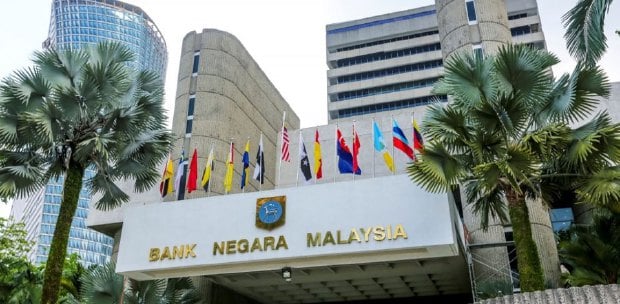KUALA LUMPUR: Bank Negara Malaysia (BNM) has organised several engagement sessions with various stakeholders since March 20 in conjunction with the release of its key reports recently.
They were the Annual Report 2023, Economic and Monetary Review 2023 and Financial Stability Review for the Second Half of 2023.
The central bank said among the important issues discussed were growth and inflation, the ringgit and structural reforms.
The engagements sought to share Bank Negara's assessment of Malaysia's economy and financial sector, as well as gain feedback from our stakeholders.
"These engagements involved government ministries and agencies, the diplomatic corps, the banking, insurance and takaful, and payment industries, economists, banking analysts and fund managers, businesses including small and medium enterprises and the media," it said.
*Growth and Inflation*
Concerning growth and inflation, Bank Negara said key stakeholders discussed the outlook for growth and inflation for Malaysia this year, including possible actions taken by the Monetary Policy Committee (MPC).
It said the monetary policy will continue to be forward-looking and informed by the MPC's assessment of the prospects of domestic inflation and growth.
"The positive growth trajectory and moderate inflation this year present a window of opportunity for the implementation of structural reforms.
"A more targeted approach towards fuel subsidies is critical to help mitigate the impact on the cost of living on the rakyat," it said.
*Ringgit*
Bank Negara said the discussion on the ringgit focused on the bank's assessment of the currency
's performance and the tools that can be used to provide support, including whether it will consider raising the overnight policy rate (OPR).
Bank Negara reiterated that the OPR is not a tool to manage the ringgit exchange rate.
Instead, the central bank has and will continue to take concerted measures to manage short-term pressure on the ringgit.
Bank Negara also clarified that Malaysia's international reserves are adequate and sufficient to finance 5.4 months of imports of goods and services and is 1.0 times the total short-term external debt as of March 15, 2024.
*Structural Reform*
On structural reform, Bank Negars said most key stakeholders are interested in understanding the mechanism, sequence and timing of the implementation of structural reforms by the government.
"The government is clear about its reform agenda, including strategic reforms outlined in key policy documents such as the National Investment Aspirations, New Industry Master Plan 2023 and the Energy Transition Roadmap.
"Key stakeholders also agreed on the importance of implementing effective structural reforms and the subsequent impact on economic growth and the ringgit," it added.






